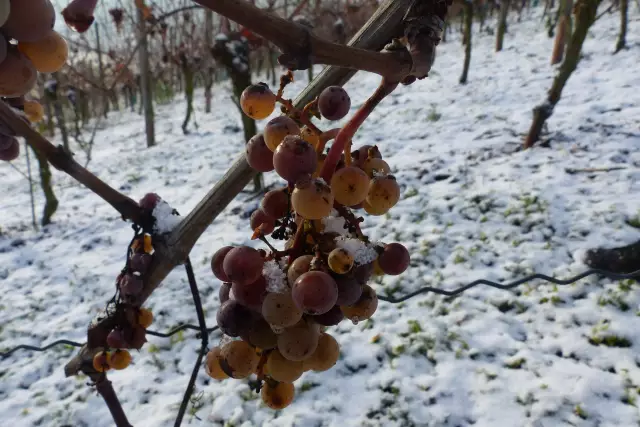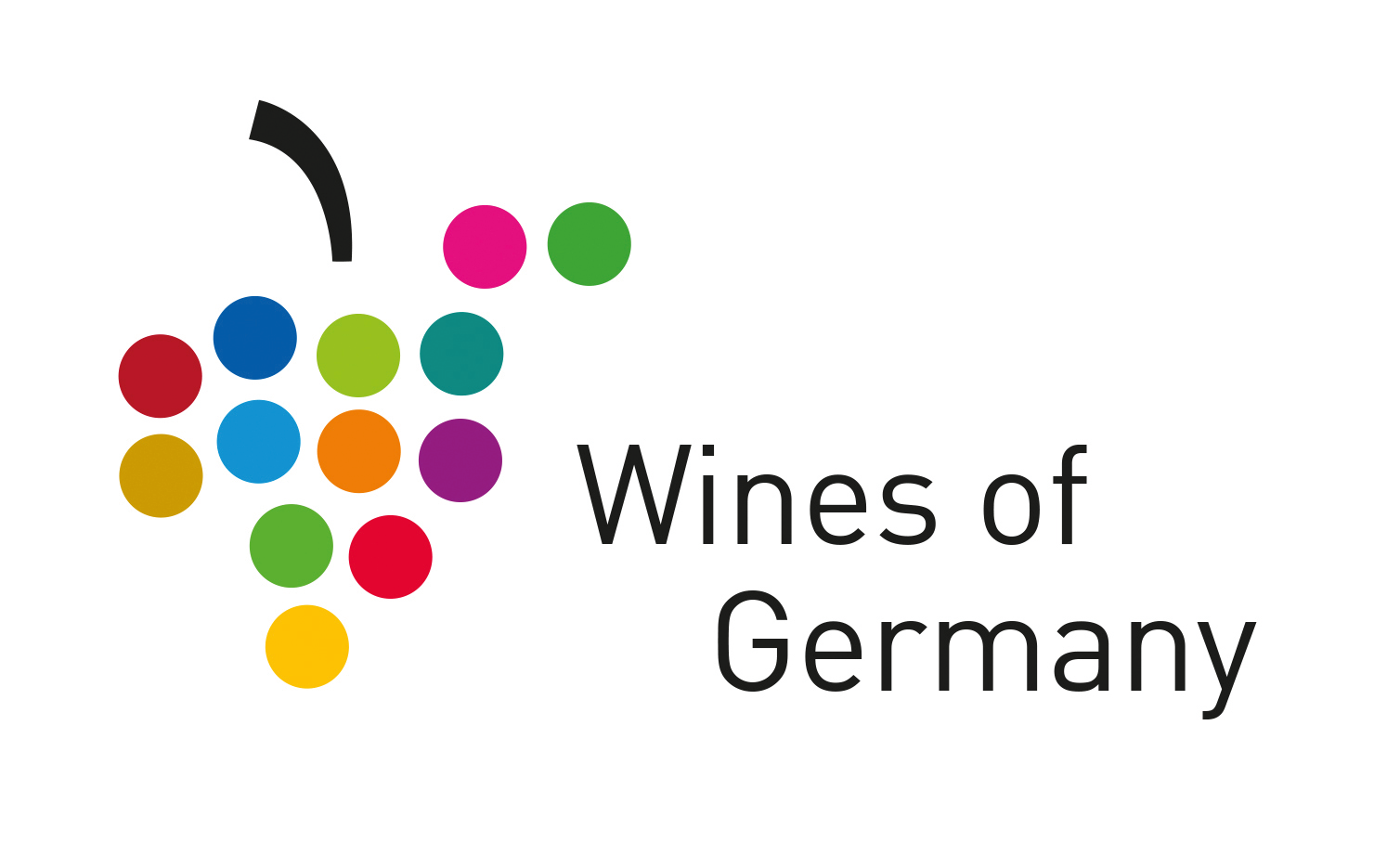Cold, wintry weather over the past few days, with temperatures sometimes falling below -7°C in Germany, has enabled wine producers in many places to crown the 2023 vintage with an Eiswein (or ice wine) harvest.

Winegrowers from Rheinhessen, Württemberg and Franken were able to bring in the coveted frozen grapes. The Metzingen-Neuhausen winegrowers’ cooperative reported a harvest of around 400 kg of grapes or 70 litres of must at 140°Oechsle. The Andreas Braun winery in Volkach in Franken, Bavaria, was also able to harvest frozen grapes for around 200 litres of Riesling in icy temperatures.
Minus seven degrees Celsius
For an ice wine harvest, the grapes must be frozen through. This requires at least minus seven degrees for several hours. The overripe grapes are harvested frozen and pressed.
The Eiswein gamble – not without risk
Eiswein has always presented its own risks for winegrowers. If producers have left bunches on vines in the hope of producing Eiswein and the temperatures do not reach the lows needed, the fruit is wasted. As a result, the areas registered for an Eiswein harvest have seen a steady decline in recent years.
For example, according to information from Franken’s winegrower association, fewer and fewer winegrowers in Franconia are relying on Eiswein, as winters are getting warmer and warmer and frosty temperatures often only prevail in January or February. While around 40 wineries were still able to harvest Eiswein in 2012, only seven wine producers were able to harvest a total of around 600-700 litres of the coveted grapes in 2022.
Rheinland-Pfalz: More Eiswein acreage than year before
However, in Rheinland-Pfalz, 40 wineries registered around 32 hectares for the ice wine harvest this year, compared to just 24 hectares in 2022.
Eiswein is a rarity and demands a lot of skill from the winemaker. “Especially after a difficult autumn, only a few winegrowers dare to take the risk,” says Benjamin Petry, viticulture officer at the Rhineland-Palatinate Chamber of Agriculture. For this vintage, areas have been registered primarily for Riesling and Silvaner, followed by Gewürztraminer.
Noble sweet specialty in demand internationally
The secret of Eiswein lies in the dense concentration of ingredients from grapes that are as healthy as possible. In the frosty temperatures, the water in the berries freezes and remains in the wine press. The juice then drips from the press as sweet as honey. Musts with such a high sugar content can only be fermented into wine with great difficulty by the yeasts. Accordingly, Eiswein usually has very high natural residual sugar levels of well over 100 grams per litre, with relatively low alcohol levels – often only around seven percent by volume.
Great international recognition
Thanks to the fresh fruit acidity the sweetness in Eiswein isn’t overpowering. As a rarity and specialty, German Eiswein also enjoys great international recognition.


